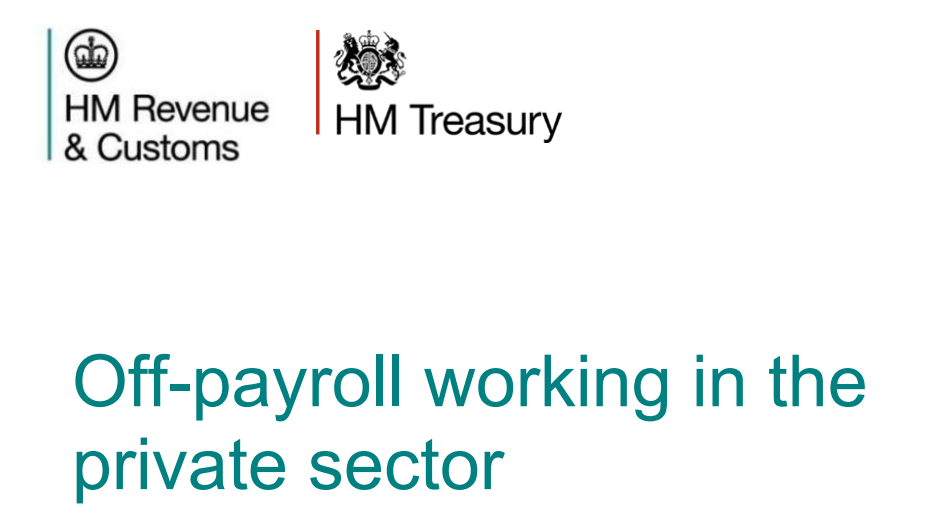IR35 private sector consultation now open
HMRC has launched its long-awaited consultation on plans to extend the IR35 off-payroll working rules to the private sector, which could affect 2 million contractors.
The consultation paper lays out HMRC’s evaluation of how the public sector reforms have gone, and considers the options for a roll out to the private sector.
We have read and digested the consultation document and picked out the salient points in order to get an idea of what is likely to happen and when.
First though, a bit of background:
IR35 – where we are to date
IR35 was introduced in 2000 to ensure contractors who work in the same way as employees, but through a limited company, would receive the same tax treatment as employees, thus tackling so-called “disguised employment”.
Since April 2017, responsibility for compliance with IR35 in the public sector has been shifted from the individual contractor to the public sector body they are working for.
In the Autumn Budget 2017, the government announced that it would consult on how to tackle non-compliance in the private sector.
The consultation opened on 18th May 2018 and will close on 10th August 2018.
Evaluation of IR35 reform in the public sector
HMRC is clear in its position that the changes to IR35 in the public sector have been successful in tackling non-compliance by having more people taxed at source.
According to HMRC figures, in any given month since the reform was introduced, an estimated 58,000 extra individuals have been paid through PAYE, bringing an additional £410 million into the public purse.
Given this, it is safe to assume they are keen to cast a wider net by extending the public sector reform to the private sector.
HMRC does acknowledge concerns about the impact of the public sector reforms on UK labour market flexibility and the administrative burden on clients and agencies.
However, it goes on to somewhat dismiss evidence of this as “anecdotal” and in the factsheet accompanying the consultation paper, says that research suggests the admin burden has reduced since implementation and almost all public authorities surveyed are now confident that they are complying with the reform.
They also maintain that the functionality of the CEST tool for determining IR35 status has improved over time.
What they won’t be doing…
HMRC summarises three alternatives to reform that have come out of previous consultations:
- Minimum length of engagement – the idea that the off-payroll working rules would not apply to workers on very short contracts, eg. less than one month.
- Freelancer Limited Company – the suggestion to create a new corporate structure with simplified tax treatment, limited liability, restricted frequency of dividend payments and a minimum salary requirement.
- Client pays employer NICS – this proposal was for the client to apply a new test to the individual and if the test applies, then the client would have to pay employer NICS on the money they pay the limited company. The company itself however, would not be subject to PAYE tax or employees NICs.
- Flat-rate withholding tax – this proposed the introduction of a flat-rate tax, similar to CIS. The income tax and NICs withheld would be offset against the limited company’s final liability if the off-payroll rules are later found to apply, or are otherwise refunded.
Of the alternatives suggested above, HMRC says:
“These options are out of scope of this consultation as they are either designed to change the tests that determine whether the off-payroll rules apply, or to change the tax or NICs treatment of those who are found to be inside, or outside of the rules.”
What does this mean?
While it looks highly likely that a roll out to the private sector is inevitable, HMRC was at pains to stress that it is not a done deal:
“The government has made no decisions about how to proceed and wants to consider the evidence of how the public sector reform has gone, as well as the impact on businesses and individuals who would have to implement any change.”
There could be a “cut and paste” roll out of the public sector reform, or some variation of it.
Suggested approaches outlined in the consultation document include supply chain assurance and additional record keeping.
The bottom line
Well, to paraphrase Sherlock Holmes “When you have eliminated the impossible, whatever remains must be the truth”, and certainly that seems to be the case here.
HMRC is firm in its belief that “the available evidence shows that the public sector reform has been effective in tackling non-compliance with the off-payroll working rules”.
It has also eliminated the proposals put forward as alternatives. All that remains therefore, is an extension of the off-payroll working rules to the private sector. The only question is when, and how different the reforms will look to the public sector, if at all.
You can read the full consultation document here
Help with IR35
As the private sector consultation on off-payroll progresses, IR35 remains a hot topic and we will continue to keep you updated via our IR35 hub.
It’s the go-to place for IR35 knowledge and insight. Check it out by clicking the link below





